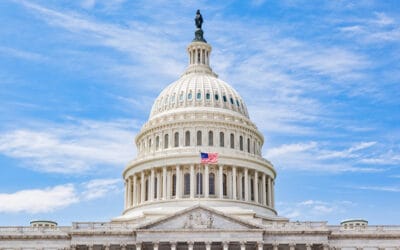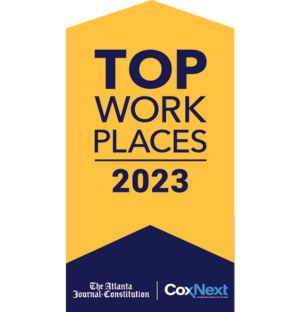Disclaimer: This information was correct at the time of publication; however, new guidance from government agencies may be issued at any time, causing some or all of this information to change. Please visit our COVID-19 Business Strategy Hub for the latest news and ensure you are subscribed here to receive email alerts as they are released. We are working diligently to provide the most current information as it becomes available under our COVID-19 Actionable Insights For Businesses Series.
ERC History
The ERC was initially introduced in March of 2020 as part of the Coronavirus Aid, Relief, and Economic Security (CARES) Act. The Consolidated Appropriations Act (CAA), which was enacted in December of 2020, made several key changes to the ERC, including extending the credit for eligible employers that continued to pay wages during COVID-19 closures or recorded reduced revenue through June 30, 2021. For a breakdown of the ERC as defined in the CAA, read our previous blog post:
One significant change under the CAA was that employers that receive Paycheck Protection Program (PPP) loans can still qualify for the ERC with qualified wages not paid with forgiven PPP funds. Before the passing of the ARPA, the IRS followed up with additional guidance on ERC eligibility for PPP borrowers. To explore highlights from this guidance and an example of how to calculate ERC eligibility and PPP forgiveness, read our previous blog post:
ARPA Changes
The ARPA extends the ERC through the end of 2021. It also makes some changes that apply solely to the third and fourth quarters of the year. For example, the credit will be applied against an employer’s share of Medicare taxes, rather than Social Security taxes; excess credits continue to be refundable.
The new law expands the pool of employers who can take advantage of the credit by establishing a third path — beyond the suspension of operations or decline in gross receipts — to eligibility. Now, so-called “recovery startup businesses” may also qualify for the ERC.
A recovery startup business generally is an employer that:
- Began operating after February 15, 2020, and
- Has average annual gross receipts of less than or equal to $1 million.
While these employers can claim the credit without suspended operations or reduced receipts, it’s limited to $50,000 total per quarter.
The ARPA also targets extra relief at “severely financially distressed employers,” meaning those with less than 10% of gross receipts for 2021 when compared to the same period in 2019. Such employers can count as qualified wages any wages paid to an employee during any calendar quarter — regardless of employer size. Otherwise, the ARPA continues to distinguish between large employers and small employers for purposes of determining qualified wages.
For large employers that averaged more than 500 full-time employees during 2019 (or 2020 if the employer didn’t exist in 2019), qualified wages are those paid to an employee who isn’t providing services because of the circumstances that made the employer eligible for the ERC. For smaller employers, qualified wages include wages paid — regardless of whether the employee was working — during the period of suspended operations or the calendar quarter in which the gross receipts test was satisfied.
Qualified wages can’t include wages used to compute other credits, loan forgiveness or certain grants received from the Small Business Administration. This applies to all eligible employers.
Note that the ARPA extends the statute of limitations for the IRS to evaluate ERC claims. The IRS will have five years, as opposed to the typical three years, from the date the original return for the calendar quarter for which the credit is computed is deemed filed.
IRS Guidance on “Partial Suspension of Operations”
As mentioned above, in early March 2021, the IRS issued additional guidance on the ERC. Among the guidance related to PPP borrowers claiming the ERC, it provides some help for determining whether operations were partially suspended because of a COVID-19-related government order.
The IRS has previously stated that “more than a nominal portion” of operations had to be suspended. In Notice 2021-20, it explained that this criterion is met when:
- Gross receipts from the suspended operations are 10% or more of total gross receipts,
- Hours of service performed by employees in the suspended operations are 10% or more of total hours of service, or
- Modifications to operations result in a reduction of 10% or more of the employer’s ability to provide goods or services.
It is important to note that the additional guidance in the notice is applicable only for the ERC in 2020.
A Complex Calculation
The precise amount of your ERC will vary depending on the period, your number of employees and other factors. The Moore Colson Tax Services practice can help ensure that you correctly calculate your credit and don’t leave money on the table. Please contact us for more information.
© 2021
Bert Mills, CPA, is the Managing Partner at Moore Colson. In his role, Bert sets the vision and mission of the Firm and works closely with the Firm’s leadership to drive and implement strategies.
Andy Starnes, CPA, is a Partner and Tax Services Practice Leader Moore Colson. Andy’s specialties include corporate tax compliance and planning, business consulting and multi-generational planning with a focus on the construction, professional services and staffing industries.
Chris Arnone, CPA, is a Partner and Business Assurance Practice Leader at Moore Colson. Chris has over 20 years of experience providing audit, accounting and consulting services for companies in the transportation, manufacturing, distribution, staffing, private equity and venture capital industries.








